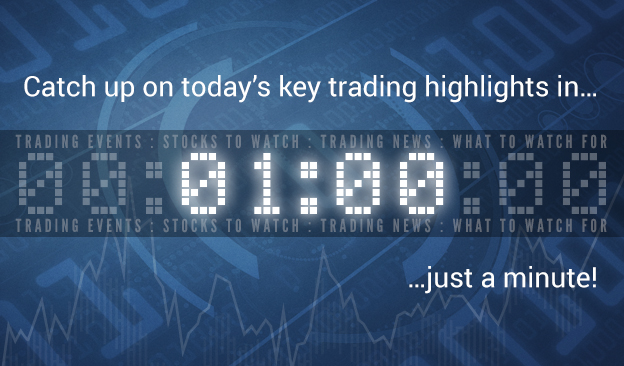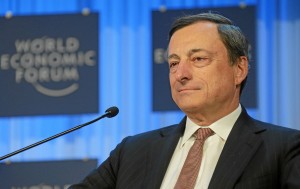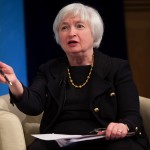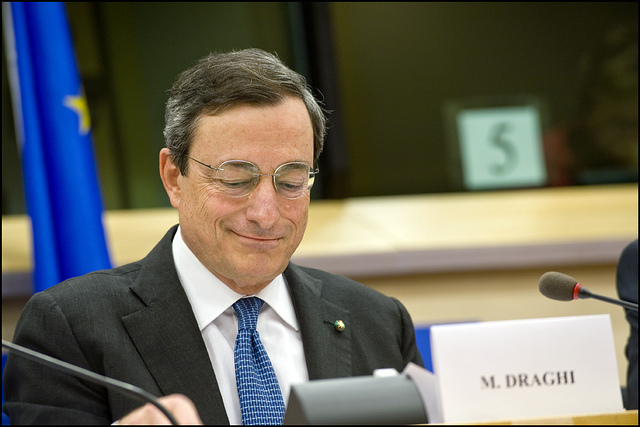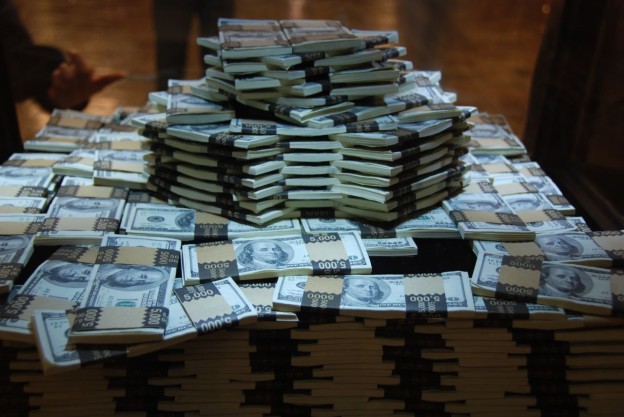Here’s today’s ‘Just A Minute’ bringing you a 60 second summary what’s happening in the markets today:
Main Trading Events Of The Day: ECB President Draghi Speaks @ 15.30; BOE Gov Carney Speaks & Inflation Report @10.30 GMT
Earnings Reports: N/A
WHAT WE’RE WATCHING TODAY
Stocks Rise Along With Gold On Yellen’s Comments
U.S. stocks surged with the Dow Jones Industrial Average rising triple digits and the Nasdaq Composite turning positive for the year, as Federal Reserve Chair Janet Yellen reassured Wall Street that the Fed would continue the central bank’s policy of providing monetary stimulus to bolster the economy and expected “a great deal of continuity” with the monetary policies of her predecessor, Ben Bernanke. The House voted to suspend the nation’s borrowing limit until March 2015, without any policy conditions. This was a positive move for the markets because previous debates on U.S. government spending have weighed on global markets in the past, in particular, the budget impasse late last year that resulted in a government shutdown. Asian markets also moved higher after Yellen suggested that there would be no major change in the central bank’s policy, while stronger-than-expected trade data pushed Hong Kong higher. Gold bullion also gained again in trading today following Yellen’s testimony. The Fed is now buying $65 billion in bonds each month to stimulate the economy, down $20 billion from its 2013 pace. Many gold bugs predict inflation will follow the central bank’s accumulation of a $4.1 trillion balance sheet.
ECB’s Draghi Speaks; Will Deflation Be On The Agenda?
ECB President Draghi will deliver the keynote address at a conference in Brussels today. Euro-zone industrial output fell a seasonally adjusted 0.3 percent in December compared with a gain of 1.8 percent in the previous month. All eyes will be on Mario Draghi and any indications about economic measures that the ECB is likely to impose in order to beat deflation. The ECB may soon have to roll out the heavy artillery, in the form of an asset purchase program similar to those in the U.S., U.K. and Japan to fight the specter of deflation. Despite substantial progress over the past year, the euro-area economy remains vulnerable. Spare capacity and weak growth, along with relative price cuts by countries trying to restore competitiveness, is putting severe downward pressure on inflation. Bank of England Governor Mark Carney also releases an inflation report today where he will seek to cement investor expectations that the next increase in interest rates is some time away when he presents an updated version of his forward-guidance policy. Yields suggest Carney has convinced traders that there is enough slack in the economy to maintain the benchmark rate at a record 0.5 percent this year.
Will Apple’s Sapphire-Screen iPhone Be Here Soon?
The latest rumours surfacing about Apple’s plans to manufacture sapphire are the most credible foundation yet for speculation that the iPhone will one day soon boast the most scratch-resistant screen on the planet. It’s not yet clear if the next-generation iPhone would get such a sapphire screen, or if the world will have to wait until 2015, presumably for an “iPhone 6s” model. Some are even claiming that it will be the iWatch that will be the first Apple device to be equipped with the scratch-resistant material. If the latest sapphire tech rumour is true, Apple’s exclusive manufacturing partner, GT Advanced Technologies, is gearing up its Arizona manufacturing facility with enough furnaces to forge as many as 200 million iPhone displays. The price of sapphire will inevitably result in driving up the retail price tag of the iPhone. A price increase could be detrimental to Apple as the iPhone already has a premium price tag. One to watch!
That sums up today’s highlights! Keep checking in for all the latest trading news via Facebook, Twitter & Google+. We hope you have a profitable day on the markets!

